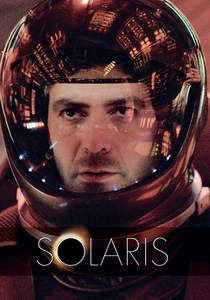Space stations have long been a staple in science fiction, offering a unique setting for stories that explore the mysteries of the universe, human ingenuity, and sometimes, the darker sides of isolation and technology. This curated list of 10 films not only showcases the diversity of narratives set in space but also highlights the evolution of space station design in cinema. From classic tales to modern blockbusters, these films provide a fascinating look at life beyond Earth, making them a must-watch for any sci-fi enthusiast.

2001: A Space Odyssey (1968)
Description: This film is a cornerstone of sci-fi cinema, featuring the iconic space station V, where the story begins. It explores themes of human evolution, AI, and space travel, making it an essential watch for understanding the genre's roots.
Fact: Stanley Kubrick and Arthur C. Clarke developed the story simultaneously, with the film's visual effects setting new standards for the time.
 Watch Now
Watch Now 
Event Horizon (1997)
Description: This film features a space station designed to explore black holes, but things go horribly wrong. It's a mix of horror and sci-fi, making it a unique entry in this collection.
Fact: The film was originally much darker and more graphic, but it was toned down for release.
 Watch Now
Watch Now 
Armageddon (1998)
Description: While not exclusively set on a space station, the film includes scenes on the Russian space station Mir, where astronauts prepare for a mission to save Earth from an asteroid.
Fact: The film's depiction of space travel was criticized for its inaccuracies, but it remains a beloved action-adventure.
 Watch Now
Watch Now 
Solaris (2002)
Description: Steven Soderbergh's remake of the Soviet classic focuses on a space station orbiting the planet Solaris, where the crew encounters mysterious phenomena. It delves into themes of memory, identity, and the human psyche.
Fact: The film was shot in a single location to maintain the claustrophobic feel of the space station.
 Watch Now
Watch Now 
Sunshine (2007)
Description: A mission to reignite the dying sun, this film uses a space station as the base for a team of astronauts. It combines hard science fiction with psychological horror, making it a gripping addition to this list.
Fact: The film's director, Danny Boyle, consulted with scientists to ensure the science was as accurate as possible.
 Watch Now
Watch Now 
Interstellar (2014)
Description: This epic film features the Endurance spacecraft, which serves as a mobile space station for the crew exploring wormholes and habitable planets. Its portrayal of space travel and time dilation is both scientifically intriguing and emotionally compelling.
Fact: The film's script was developed with input from physicist Kip Thorne to ensure the scientific concepts were as accurate as possible.
 Watch Now
Watch Now 
Moon (2009)
Description: While not set on a traditional space station, the lunar base in "Moon" functions similarly, providing a setting for introspection and existential crises. It's a thoughtful exploration of identity and isolation.
Fact: Sam Rockwell plays both the main character and his clone, showcasing his versatility as an actor.
 Watch Now
Watch Now 
Pandorum (2009)
Description: Set on a massive interstellar ark, this film explores themes of amnesia, paranoia, and survival in deep space. The ark functions as a space station, making it relevant to our theme.
Fact: The film was inspired by the psychological effects of space travel, known as "space madness."
 Watch Now
Watch Now 
Gravity (2013)
Description: Set almost entirely in space, this film showcases the International Space Station (ISS) as a critical setting for survival after a space disaster. Its realistic portrayal of space travel and the human spirit's resilience makes it a standout in this collection.
Fact: The film was shot in a way to simulate zero gravity, using a combination of CGI and real-life footage from space.
 Watch Now
Watch Now 
The Martian (2015)
Description: Although primarily set on Mars, the film includes scenes on the Hermes spacecraft, which serves as a space station for the crew. It's a tale of survival, ingenuity, and the human spirit.
Fact: The film's science was reviewed by NASA to ensure accuracy in depicting space travel and Martian conditions.
 Watch Now
Watch Now 








